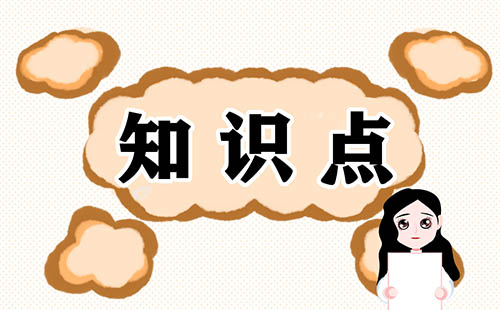初一英语上册知识点全5篇
相关文章
学习效率的高低,是一个学生综合学习能力的体现。在学生时代,学习效率的高低主要对学习成绩产生影响。当一个人进入社会之后,还要在工作中不断学习新的知识和技能,这时候,一个人学习效率的高低则会影响他(或她)的工作成绩,继而影响他的事业和前途。下面是小编为您整理的《七年级级英语上册知识点》,仅供大家参考。

初一英语上册知识点全1
(1)this和that是指示代词,it是人称代词。
(2)距离说话人近的人或物用this, 距离说话人远的人或物用that。
如: This is a flower. 这是一朵花。(近处)That is a tree. 那是一棵树。(远处)
(3)放在一起的两样东西,先说this, 后说that。
如: This is a pen. That is a pencil. 这是一支钢笔。那是一支铅笔。
(4)向别人介绍某人时说This is…, 不说That is…。
如:This is Helen. Helen, this is Tom. 这是海伦,海伦,这是汤姆。
(5)This is 不能缩写, 而That is可以缩写。
如: This is a bike. That’s a car. 这是一辆自行车。那是一辆轿车。
(6)打电话时,介绍自己用this, 询问对方用that。
如: —Hello! Is that Miss Green? 喂,是格林小姐吗? —Yes, this is. Who’s that? 是的,我是,你是谁?
注意:虽然汉语中使用“我”和“你”,但英语中打电话时绝不可以说:I am…, Are you…?/Who are you? (7)在回答this或that作主语的疑问句时, 要用it代替this或that。
如: ①—Is this a notebook? 这是笔记本吗?—Yes, it is. 是的,它是。
②—What’s that? 那是什么?—It’s a kite. 是只风筝。
初一英语上册知识点全2
1 询问职业的特殊疑问词是what; 有三种主要句式
① What + is / are + sb?
② What + does/ do + sb + do?
③ What + is/ are + 名词所有格/ 形容词性物主代词 + job?
2 People give me their money or get their money from me.
3 Sometimes I work in the day and sometimes at night.
4 I like talking to people.
5 I work late. I’m very busy when people go out to dinners.
6 Where does your sister work?
7 then we have a job for you as a waiter.
8 Do you want to work for a magazine? Then come and work for us as a reporter.
9 Do you like to work evenings and weekends?
10 We are an international school for children of 5-12.
初一英语上册知识点全3
①在英语中,句子的第一个单词的第一个字母都应大写。 Sit down, please. 请坐。
②字母I作人称代词时,意为“我”,在句中任何位置都必须大写。日常用语“OK”在句中任何位置都大写。I’m a student. 我是一名学生。 Is everythingOK? 一切都好吗?
③人名、地名、国名、某国人或某种语言等专有名词的第一个字母都必须大写。
Lucy 露西 China 中国 Beijing 北京 Chinese 中国人
④表示月份、星期、重要节日的名词的第一个字母必须大写。
May 五月 Monday 星期一 New Year’s Day 元旦
⑤ 电影名、书名、报刊、文章的标题等中的每一个实词(如:名词、动词、形容词、副词、数词)的第一个字母一般大写。
English Weekly 《英语周报》 Titanic 《泰坦尼克号真相》
⑥ 某些缩略词的每一个字母都必须大写。
RMB 人民币 CCTV 中国中央电视台 PK 挑战,对决
⑦ 表示职业、头衔和称呼的名词的第一个字母通常要大写。
Uncle Lee 李叔叔 Doctor Wang 王医生
初一英语上册知识点全4
1、三种人称:第一人称(I, we),第二人称(you, you),第三人称(he, she, it, Maria).
2、人称代词的主格,即人称代词位于句子主语位置时的形态:I, We, You, You, He, She, It, Maria.
3、人称代词的宾格,即人称代词位于句子宾语位置时的形态:me, us, you, you, him, her, it.
4、形容词性物主代词:my, our, your, your, his, her, its, their.
5、名词性物主代词:mine, ours, yours, yours, his, hers, its, theirs.
6、反身代词:myself, ourselves, yourself, yourselves, himself, herself, itself, themselves.
初一英语上册知识点全5
Unit 1
词汇重点:
1. Good morning/ afternoon / evening 早上/下午/晚上好 Good night 晚安(晚上告别)
2. glad / nice to meet / see you 见到你很高兴 (回答也一样)
3. welcome to + 地点 欢迎来到…… (回答:Thank you 或者Thanks)
4.let’s + V(原) 让我们做……
5. stand up 起立 sit down 坐下
6. this is----- 这是…… (用于介绍第三者的用语)
7. How do you do ?你好 (回答也是:How do you do ? )
8. How are you ? 你好吗? Fine ,thank you .and you ? 很好;谢谢;你呢?
I’m OK / I’m fine , too . 我也很好。
9.see you = see you later = see you soon = good-bye 再见
10.excuse me 打扰一下;请问
11.I’m -----= my name is ---- 我是……
12. be from = come from 来自
13.in English 用英语
14.Can you spell it ? Yes / No 你能拼写它吗? 能/不能
15.That’s OK / That’s all right / You’re welcome / Not at all 不用谢
16. …… years old ……岁
17.telephone number 电话号码 QQ number QQ号码 ID number 身份证
18.the same (相同的) 反义词是 different (不同的)
例: We are in the same grade, but we are in different classes.
重点句子句型:
1. What is your name ? 你的名字是什么?
2. Where +be + 主语 + from? 某人来自于哪里?(回答:主语+be+地点)
Where are you from? I am from quanzhou.
3. How old + be + 主语? 某人几岁? (回答: 主语 + be + 数字 )
例: How old are you ? I’m forteen.
4. What is your telephone number? 你的电话号码是多少?
(回答:My telephone number is----或者It’s -------)注意:读出号码的时候要逐个读出。
5. What class / grade +be + 主语 + in ? 某人在哪一个班级/年级?
例:what class are you in ? I am in Class Five. (注意:Class 和 Five需要大写)
what grade are you in ? I am in Grade Seven.(注意:Glass 和 Seven需要大写)
6. What’s this/ that (in English) ? 这是什么? (回答:It’s a/an + 单数名词. 这是……)
What’ re these/ those (in English) ? 这些是什么?(回答:They’re + 复数名词 这些是……)
7. How do you spell it ? 你怎么拼写它? E-R-A-S-E-R, eraser. (注意拼读方法)
Unit 2
1.sb + has/ have ( an /a ) + adj + 五官 === sb’s 五官 is / are + adj (描述长相)
例:Lily has a small nose. = Lily’s nose is small.
2.I know = I see 我明白了
3.That’s right 那是对的
4.look the same look like 看起来相像 look different 看起来不同
例: Jim and Lilei look the same.== Jim looks like Lilei. .
5. look at + n 看某物 look for +n 寻找某人/某物 look after +n 照顾某人
6.both 两者都…… all 三者或者三者以上都……
oth 和 all位于 be动词或情态动词后,位于行为动词前。
例: We are both students. We both have black eyes. We can both speak English.
7. give sth to sb = give sb sth 把某物给某人; (注意:如果sth是it或them,只能用前者)
8. have different looks == look different 有着不同的长相 (看起来不相像)
have the same look. ==look the same 有着相同的长相 (看起来很相像)
9.over there 在那边 come in 请进 go out 出去
10. in + 颜色 或 in a/an/the +颜色 + 衣服 表示穿着……颜色的衣服
常常接在名词的后面,表示穿----颜色衣服的…… 如 the girl in red is my sister.
11. too + adj 太……
12.pants 和 shoes 做主语,谓语动词用复数;但a pair of pants/ shoes作主语时,谓语动词用单数形式
例: His shoes are black. A pair of shoes is under the bed.
13. in the morning/ afternoom/ evening 在早上/下午/晚上 at night 在晚上
14.go shopping = go to the shop 去购物 类似的有 go swimming go fishing go skating 等等
15.help sb. ( to ) do sth == help sb with sth 帮助某人做某事 注意:sb 用代词时必须用宾格
16.high school 中学
17.play +球类 play the 乐器
18.think of 认为,想 think about 考虑 I think + 从句 我认为……
I think he you are right. 否定式常否定主句,但翻译时要否定后面的从句
例:I don’t think he can come. 我认为他不会来了.(不能说:我不认为他会来)
句型:
1. What do/does + 主语 + look like ? 询问人的长相
例: What does your English teacher look like ?
2.What’s -----and ------? ……加……是什么?(回答:It’s ------)
例:What’s red and yellow? It’s orange. What’s two and five? It’s seven.
3.Whose + 东西 + is this/ that ? Whose + 东西 +are these/ those ? 这/这些 是谁的……?
例:Whose coat is this ? It is mine. Whose shoes are these ? They are hers.
4.Who is the letter from? 这封信来自于谁? It’s from Lily. 它来自于莉莉。
5.What color be + 东西? (回答:It’s +颜色 或者 They’er + 颜色)
例:What color is your dress? It’s black.


